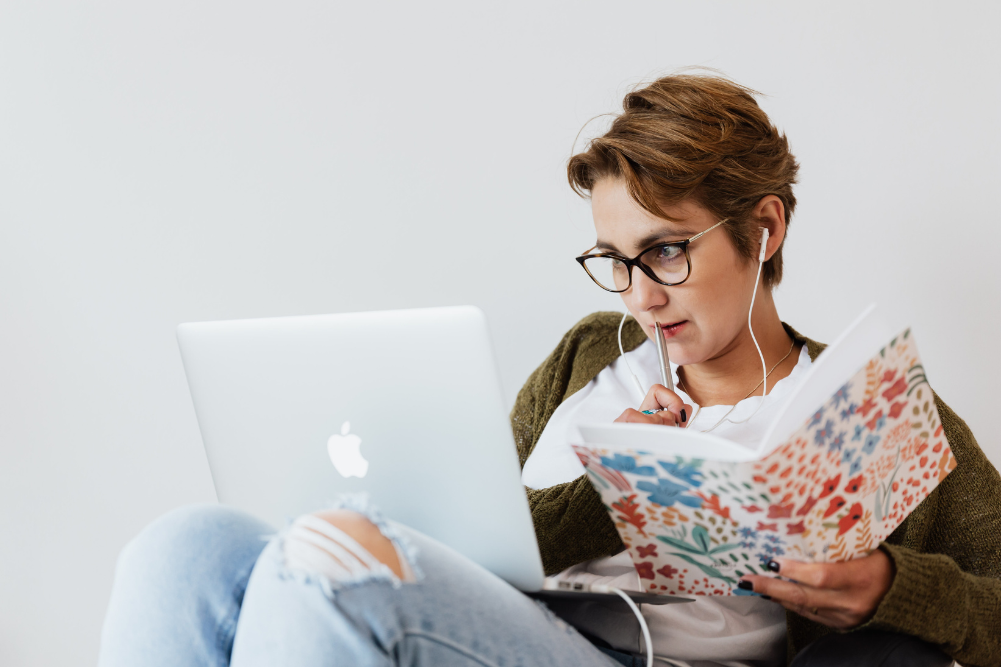I should exercise more. I should get up earlier. I should eat more green leafy vegetables … or maybe I should just stop saying “should”. By “should-ing,” I’m comparing myself with others, or with an idealised version of what I could be. “Should” suggests that I need to change, because who I am now isn’t good enough.
Sure, occasionally “should” can be helpful. It can help us focus on our priorities. For example, if I want to complete another half-marathon this year, I’ll need to train. But telling myself I should run doesn’t always motivate me to hit the pavement. Perhaps there are better ways to encourage myself.
Psychologist Patrea O’Donoghue says one of the problems with “should” is that it puts a negative slant on things. Even things we want to do can lose their appeal if we throw “should” into the mix. “It’s got that negative heaviness to it that I think counterbalances any positive element that we’re going to get from it,” she says.
This negative impact often stems from obligation. “Anything that follows ‘should’ has probably come from outside us,” says Patrea. Whether from family, culture or other outside influences, we often internalise these obligations and associate them with being “good”. By that logic, we can perceive ourselves as “bad” if we don’t do these things. And generalising our behaviours into judgements about being good or bad is unhelpful, unproductive and unkind.
So, how do we turn should-ing around and move towards self-compassion?
Recognising the “shoulds”
The first step is awareness: how many times a day do you think or say, “I should”? Many of us would have no idea. Mindfulness or meditation, with periods of silence, is one method Patrea recommends for hearing the inner chatter and recognising what we’re telling ourselves. Another is to recruit someone we trust, and ask them to gently nudge us when we drop “should” into a conversation (or similar terms such as “must” or “have to”).
Stopping “should” in its tracks
Once we’ve identified the “should-ing”, we can begin to address it. Breaking the habit might be tricky, but Patrea has some practical ideas, such as writing down “I should” and putting a line through the words to declare a should-free zone. It’s also useful to identify whose voice is behind the “should”, and whether it aligns with your values. One way to do this is to ask yourself, “Why should I?” If this brings up a sense of obligation or pressure, and doesn’t gel with your priorities, then perhaps you could reconsider its importance. But if it’s something you really want, Patrea suggests swapping “I should” for a more positively framed expression such as “I gratefully do” or “I willingly do” — and perhaps even sticking those new words up on the fridge. See how that changes your perspective.
Separating being from doing
When we think of what we should be doing, we’re often inadvertently saying that what we are doing is wrong, says Patrea. “And often when we say, ‘What I am doing is wrong,’ we then translate that to ‘I am wrong — as a person.’” Instead of the inner point-scoring of defining ourselves by our actions, the aim is to connect with ourselves without judgement. “To just be, without doing, is a wonderful way to start,” Patrea suggests.
Being our own best friend
Self-compassion is about “treating yourself like you would your best friend,” says Patrea. This means being kind, showing understanding instead of judgement when things go wrong, and spending quality time with yourself.
Allowing ourselves simply to be, just as we are and without judgement, can be a challenge if we’re used to “should-ing” ourselves into action. But maybe we should try.
Stephanie Cantrill is a Melbourne-based freelance writer with a background in healthcare and the community sector. If she completes a half-marathon this year, it will be because she wants to and not because she should.




